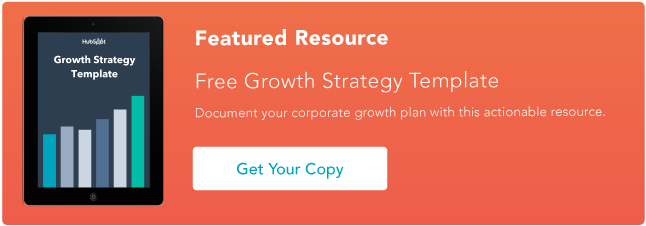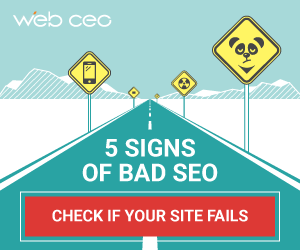The amount of data in the world is growing exponentially. By the time you finish reading this page, 90 million texts will be sent and received. 350,000 Instagram posts will be uploaded. 1.2 million Skype calls will be made. 21 million GB of traffic will be received on the internet.
Big data is everywhere, from the Netflix shows we watch to the social media we browse. But did you know that big data can also benefit your small business?
61% percent of companies say that big data drives revenue because it delivers deep insights into customer behavior. With this valuable intelligence, you can delve deeper into the collective psyche of your customers — and find out what consumers really think.
Imagine you could guess what customers purchase — and when and how. Big data isn’t a crystal ball, but it can certainly help you make smarter, faster decisions about the future of your business.
What is big data?
In the simplest of terms, big data is “big” amounts of data. It can be structured, unstructured, or semi-structured. It can be collected and shared and analyzed.
Big data is all of the information that we create. Emails. Texts. Tweets. TikToks. It’s data that passes from digital devices to routers to servers to clouds and back again.
To quote the famous computer programmer, Daniel Keys Moran:
“You can have data without information, but you cannot have information without data.”
Here’s a helpful definition of big data from Investopedia:
“Big data refers to the large, diverse sets of information that grow at ever-increasing rates. It encompasses the volume of information, the velocity or speed at which it is created and collected, and the variety or scope of the data points being covered. Big data often comes from multiple sources and arrives in multiple formats.”
Big data isn’t perfect, but it’s one of the most powerful weapons in any marketer’s arsenal. Leverage big data in your small business, and you can move more customers through your sales and marketing funnels. It’s as simple as that.
Here are some eye-watering facts about big data:
- Big data could add more than 4.4 million jobs to the American economy over the next two years.
- Humans generate 2.5 quintillion data bytes every 24 hours.
- Google processes more than 40,000 search queries every single second –that’s 3.5 billion searches a day, or 1.2 trillion a year.
The Benefits of Big Data For Small Businesses
It’s important to note that big data on its own won’t do much for your organization. However, the right technology systematically extracts large data sets from various sources so you can find patterns, trends, and correlations in this data.
The best analytics tools provide you with deeper insights into your business operations and replace many of the manual methods associated with data analysis.
Read on for some of the main benefits of using big data in your small business.
1. Cuts Costs
Big data can have a significant impact on cost-cutting in your organization by identifying expensive processes and redundant workflows. With the latest data, you can find areas of your business to scale up or down. This can have long-term financial benefits.
2. Improve Customer Service
Big data drives better customer service. With real-time insights into your customer base, you can discover how consumers think and behave – and make changes to your business as a result.
Personalized customer service derived from big data analytics will help you engage with customers on a deeper level and provide customized service that drives sales.
“Big data is poised to help marketers reach and engage customers and prospects in ways that businesses are only now starting to understand,” says business journalist Allen Bernard, writing for CIO.com. “Enterprises that don’t embrace analytics may soon see embattled customers voting with their wallets.”
Customer service is more important than ever, and more small businesses are using big data to retain consumers. Why? Just a 5% increase in customer retention generates more than 25% of profit increases.
3. Identify (and Solve) Problems
With big data, you can finally answer all those nagging questions: why do customers abandon their carts? When are customers likely to make a purchase?
Data analytics tools can give valuable insights into customer behavior as they move through your funnels.
Although data analysis isn’t an exact science, it provides you with the tools you need to solve a wide range of complex problems in your small business. As well as tracking customers, you can solve issues associated with suppliers, investors, and other clients. With real-time reports, you get a 360-degree overview of your business, and you can make smarter decisions going forward.
4. Increase Revenue
Big data increases revenue in various ways. Analytics provide you with in-depth intelligence into the customer lifecycle, and you can identify new ways to encourage sales.
Good data might give you the confidence you need to launch a new product or diversify your business, and this could prove lucrative.
On average, companies that incorporate big data into their business generate a profit increase of 8%. Do the same, and it could be the best investment you make in your small business this year.
“Most people used to think that big data was only for big business. But, as time goes on, it is clear that this technology is for everyone,” says Entrepreneur.
5. Team Management
Big data also makes it easier to manage the team in your small business. You can identify employees that provide you with the most value, for example, or employees who require additional resources or training. This is because analytics systems generate insights that help you increase productivity and keep employees happy.
“The value that big data brings to managing employees is in identifying and analyzing the relationship between engagement and retention,” says employee engagement website Hppy. “How and why people are engaging with what they do, how does that translate into the business metrics, and what you can improve to retain them.”
Combined with a great team culture that inspires engagement, the tech stack you use can make all the difference when it comes to managing your team. With an Integration Platform as a Service (iPaaS), you can connect your cloud-based apps for enriched data and the broadest range of insights.
How Small Businesses can Leverage Big Data
Remember: big data is only one slice of the pie. It’s the processes and solutions that collect, store, and analyze all your data and you should act on these that best serve your business.
So, how can your small business leverage big data for the best results?
Use your CRM intelligently.
You probably already use a CRM to manage your customer information, but you’re not necessarily getting the best results from the data inside it.
Before diving into other analytics tools, fully explore the data you already have in your CRM. Here are some valuable questions to ask as you do so:
- What do we know about the people we serve?
- How can we leverage this data to deliver the most value?
- How can we use this data to provide a more personalized experience?
- What automation and new processes can we power with this data?
Explore other analytics solutions.
A CRM can only tell you so much about your prospects and customers. With big data analytics solutions, however, you can analyze all the data inside your CRM (and other programs in your tech stack) and find patterns in all this data.
G2 Crowd shortlists some of the best big data solutions on the market, including Azure Databricks and Splunk.
However, if you want a more accessible data strategy, start with the apps you already have and look into a platform such as Clearbit to help fill the gaps in your data and enrich what you know about your contacts.
Big data software needs to be user-friendly and flexible enough for everyone on your team who manages data. It also needs to be tailored to your budget and requirements. As a small business, you likely won’t benefit from a data program designed for the world’s biggest multinationals.
Integrate your data.
Any data solution is only as good as the data it uses, and out-of-date and inconsistent information won’t provide you with any useful insights. You need to make sure your data is synced and integrated.
By deploying an integration solution, you can keep your contact database consistent and up-to-date between apps in order to ensure your customer data is well-integrated across your app stack. You can sync contacts in real-time and streamline contact management.
Create insightful reporting.
Once you have interesting data at your fingertips, you need a way to visualize it. With clear reporting, you can easily make deductions and share your insights with other team members and stakeholders.
Act on your data.
Once you have useful data in your business, what can you do with it? The short answer: automation, personalization, and customization.
Here are some of the most impactful ways to take advantage of big data as a small business:
- Personalize your emails
- Segment your email lists
- Use SEO research to influence your content strategy
- Use dynamic or smart content on your website based on device, geography, lead status, or other properties to customize content
- Send the most relevant content to a prospect based on their preferences
- Trigger internal workflows based on customer actions to provide the best service
- Create A/B tests for emails and automatically send the best content
- Pivot your company or team strategies to match what’s performing best
- Deliver the most relevant advertising and channel your spend to top-performing channels and campaigns
- Automatically organize contacts into the most relevant groups and lists in your CRM
Big data can benefit your business in various ways, from increased sales to better team management.
However, you need to leverage all this data properly to optimize your workflows and grow your small business to its full potential.
Regardless of the big data processes and tools you choose, it’s important to keep your contact database up to date. Otherwise, you’ll be limited in the results you can get from your customer data.
Originally published Oct 1, 2021 10:39:10 AM, updated October 01 2021








